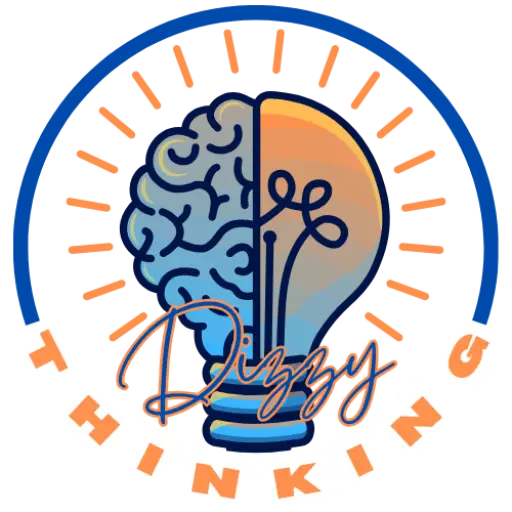
Understanding Gaslight and Its Effects
Gaslighting and self-trust are deeply connected, shaping how we perceive reality and our ability to trust ourselves. The erosion of self-trust through gaslighting can be slow, subtle, and nearly impossible to recognize at first. Gaslighting isn’t always loud. It doesn’t always come with screaming matches or clear-cut moments of betrayal. More often, it’s quiet—a slow unraveling of self-trust. It can come from anyone—a parent, a partner, a friend—sometimes intentional, sometimes not, wrapped in concern or disguised as guidance. It doesn’t always look like manipulation, but it leaves you questioning yourself in ways you don’t even notice at first.
For me, it came in small moments: being dismissed with a casual, “You’re overreacting,” or “You’re too sensitive,” or being told, “That never happened,” when I knew that it had. It wasn’t a single incident. It was a pattern, one that became so ingrained that I stopped questioning it and eventually started doing it to myself.
I don’t think my parents, exes, or friends intentionally set out to make me question myself, but when your emotions are repeatedly dismissed from an early age, it conditions you to accept it as normal and to seek it out. Until recently, I wasn’t even aware there was a pattern—I thought this was just how things were. It reinforced a belief that was hard to unlearn. “You’re fine, stop crying.” “That didn’t hurt that bad.” “You always exaggerate things.” The message wasn’t subtle—it was clear: my feelings weren’t valid unless someone else confirmed they were.
In relationships, it became more insidious. A well-placed, “I just don’t want you to embarrass yourself,” felt like concern. “Remember, I told you,” made me hesitate, until soon enough, I wasn’t so sure anymore. “You’re making a big deal out of nothing,” wasn’t just something I heard—it became something I started telling myself when I started to feel.
Sometimes, it wasn’t even words at all; it could have been a sigh, a shift in tone, an eye-roll or an unanswered question that made me feel like I had messed up or annoyed someone. I learned to overanalyze every interaction, searching for signs that I had done something wrong before anyone even had the chance to say it.
Even outside of close relationships, the pattern continued. Friends and colleagues would subtly rewrite conversations, insisting, “That’s not what was said,” or “I don’t remember it that way.” In professional settings, I found myself hesitating before speaking up, questioning whether I had misunderstood something yet again. I became hyperaware of how I was perceived, carefully filtering my words to avoid the possibility of being wrong.
Then there were the more direct moments—when someone deliberately changed the facts in real time, and I was left questioning myself. I’ve had recent conversations where I was told I had agreed to things I knew I hadn’t, where my words were twisted into something I never meant. It wasn’t always dramatic or explosive, but the end result was the same—I was left feeling confused, questioning whether I had somehow misremembered. And even when I knew the truth, I still found myself wondering, What if they’re right?
Each small dismissal, subtle correction, and rewritten reality chipped away at my confidence. Over time, I started to internalize the idea that maybe I was too much—too dramatic, too emotional. Maybe my memory wasn’t reliable. Maybe, at the end of the day, I was the one in the wrong.
With every instance of being dismissed, questioned, or invalidated, self-doubt solidified. It didn’t happen all at once, but gradually, shaping how I saw myself. I found myself replaying conversations, searching for where I might have misunderstood or misstepped. I wasn’t just questioning others—I was questioning myself before anyone else had the chance to.
I didn’t just doubt the people around me—I started doubting myself first. I questioned my own instincts before anyone else had the chance to. And the worst part? I wasn’t even aware I was doing it.
The Subtle Erosion: How Gaslighting and Self-Trust Collide
Gaslighting and self-trust cannot coexist. It starts small. A dismissive comment here. A reaction that doesn’t align with what you expected. A casual, “You’re being dramatic.” You brush it off, thinking maybe you are overreacting. But then it happens again. And again. Until eventually, you’re questioning yourself in real time: Maybe I didn’t say that right. Maybe I’m remembering it wrong. Maybe I’m the problem.
For me, this constant second-guessing became a background hum in every relationship. It wasn’t just moments of doubt—it became the lens through which I viewed myself. I wasn’t just questioning others—I was questioning me. Was I too emotional? Too intense? Too much? If someone reacted differently than I expected, I immediately assumed I had done something wrong, even if I had no idea what that something was.
And that’s the thing about gaslighting. It doesn’t just plant seeds of doubt. It teaches you to rewrite yourself in real-time, to shrink before anyone asks you to, to erase parts of yourself that others have deemed ‘too much.’
When Gaslighting Becomes Internalized
Gaslighting and self-trust are at odds—over time, those external doubts seep inward. It stops being about someone else making you question reality. It becomes the way you talk to yourself. I had been conditioned to minimize my emotions before anyone else had the chance to. I would apologize for everything, even things that weren’t my fault. I would downplay my own pain to make others more comfortable. I silenced myself before anyone else could do it for me.
I spent years convincing myself that my emotions were exaggerated or irrational. And the people around me—intentionally or not—reinforced that belief. I became the person who justified everything: Maybe they didn’t mean it that way. Maybe I misunderstood. Maybe if I just try harder, I won’t feel so hurt.
The problem is, understanding someone else doesn’t mean they’ll ever try to understand you back. And can you ever truly understand someone else? Their past, their wounds, the way they filter the world through their own experiences? Maybe not. But maybe, in the end, it’s less about understanding them and more about simply acknowledging that we are all different. And that acknowledgment alone might be enough to remind me that I can only control my actions and reactions—not theirs.
Rebuilding Trust in My Own Thoughts
Gaslighting and self-trust issues don’t end when the gaslighting stops—they linger, shaping how we see ourselves. Healing isn’t just about walking away from those who made you feel small—it’s about learning to believe yourself again. And that is not as easy as it sounds.
For me, this has meant:
- Practicing Self-Validation: When doubt creeps in, I ask myself: Would I question or speak to a friend, or even a stranger this way?
- Challenging the Narrative: When I catch myself minimizing my experience, I reframe it—Just because they didn’t acknowledge it doesn’t mean it didn’t happen.
- Writing It Down: Documenting conversations—emails, texts, voice notes—to remind myself that my memory is valid.
- Setting Boundaries Without Explanation: If something is harmful or exhausting, that’s reason enough to step back.
The Lingering Echoes (And Why They Don’t Define Me)
Even now, I still hear those doubts. But the difference is, I am learning to recognize them for what they are. They’re not truths. They’re scars.
Gaslighting and self-trust are in direct conflict—when one thrives, the other withers. Rebuilding trust in yourself is slow. It’s painful. But every moment you stand firm in your truth—no matter how small—is a victory.
And maybe, just maybe, that’s enough for today.
Featured Song: Dandelions and Daffodils
“Dandelions and Daffodils” by Britton ▶️ Listen on Apple Music
Music Speaks, where Words Fail – for me at least. Music has always been more than just sound to me—it’s been a language when words fail, a refuge when the world feels too loud, and a mirror reflecting the emotions I struggle to express.
Music has this unique ability to validate feelings I didn’t even realize I had, making sense of the chaos in my mind. I use music as a form of connection—to myself, to my experiences, and to others. Whether it’s finding solace in lyrics that speak the unspoken or using a melody to ground myself in the present, music is woven into every part of my journey and is the one constant that has been there all along the way. It’s not just background noise; it’s a guide, a coping mechanism, and, sometimes, the only thing that makes sense when nothing else does.
Table of Contents
Additional Resources
Understanding Gaslighting and Its Effects | Psychology Today – Gaslighting: Recognizing the Signs and Breaking Free
Rebuilding Self-Trust After Emotional Manipulation | Verywell Mind – How to Regain Confidence After Gaslighting
